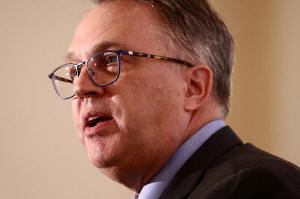|
Williams was taking stock of what economists refer to as R-Star,
the real neutral rate of interest that balances the economy in
the long run. This variable helps determine whether monetary
policy is stimulating or restraining the economy.
Some economists believe it has risen due to changes in the
economy following the coronavirus pandemic, but Williams was
skeptical.
“Although the value of R-Star is always highly uncertain, the
case for a sizable increase in R-Star has yet to meet two
important tests,” Williams said in the text of a speech prepared
for a European Central Bank Conference in Sintra, Portugal.
“Any increase in R-Star must overcome the forces that have been
pushing R-Star down for decades,” Williams said, adding “in this
regard, recent data reinforce the continuation of pre-pandemic
trends in global demographics and productivity growth.”
Williams said that R-Star was not a big factor in tactical
monetary policy decisions.
“The high degree of uncertainty about R-Star means that one
should not overly rely on estimates of R-Star in determining the
appropriate setting of monetary policy at a given point in
time,” he said.
Williams did not comment on the outlook for monetary policy and
the economy in his prepared remarks.
(Reporting by Michael S. Derby; Editing by Christina Fincher)
[© 2024 Thomson Reuters. All rights
reserved.]
This material may not be published,
broadcast, rewritten or redistributed.
Thompson Reuters is solely responsible for this content.

|
|




